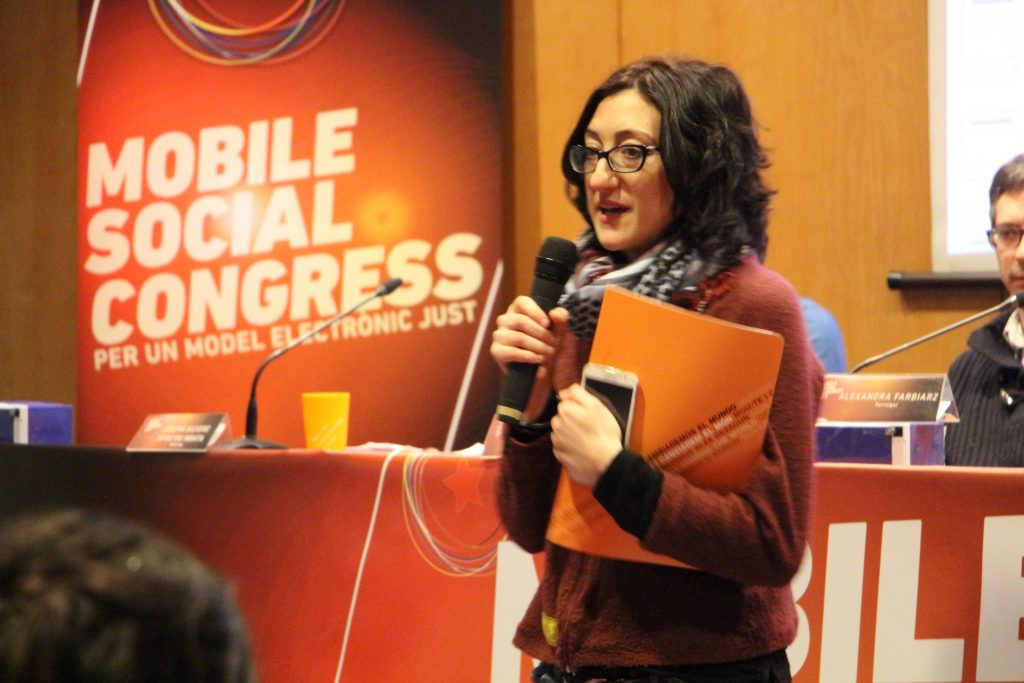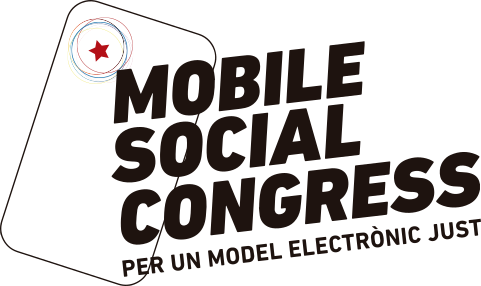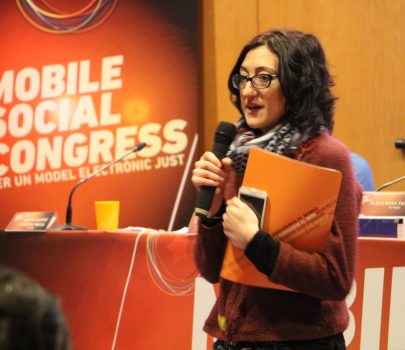The Congress provides elements for reflection and debate on facets of the technology industry silenced by the Mobile World Congress, held at the same time in Barcelona
Among others, a recent report by Electronics Watch shows the growing impact of the working conditions in tech factories in China on suicide rates in the country
This year, the 4th edition of the Mobile Social Congress (MSC) will be held on February 26 and 27 in Barcelona. Like each year, the congress is organized by SETEM Catalonia in collaboration with other entities and administrations, and will include a number of debates and activities on the social and environmental impacts of the technology industry. Among other things, this year’s edition will include the presentation of a recent report by Electronics Watch on the connection between suicide rates and working conditions in electronics factories in China. MSC will also offer accounts and research on mining in different regions of the world for the extraction of the raw materials needed in electronics.
This year’s edition of MSC will be focused on the “modern slavery” generated by the technology industry’s model of production and consumption. It will do so with four discussions that look at the different phases of the production and consumption of electronics. An initial discussion will address the social and environmental impacts of mining, the first link in the global electronics industry’s supply chain. Real and current data on experiences in mines in Chile, Armenia or Zambia will be presented, along with information on the serious environmental and social effects suffered by local communities as a result of the extraction of minerals for the production of electronic “gadgets”.
The second discussion, held on February 26, will address workers’ rights in the manufacturing of electronics. It will include the presentation of a report on the impact of factory working conditions on suicide rates in China, among others. In addition, those present will look at the social struggle taking place in Hungary as a result of the “slavery law” passed there in December, which allows companies to increase overtime to up to 400 hours per person, per year. The electronics industry still carries significant weight in Hungary.
After a first day focused on the initial phases in the production of electronics, the debates held on February 27 will look at the purchasing and consumption of technology, and how it is quickly converted into waste as a result of planned obsolescence. These two topics will be addressed by examining positive experiences, such as how socially responsible public purchasing can be used to fight the exploitation of workers in the industry. One example of this is currently being promoted by the Barcelona City Council. Another debate will focus on responsible consumption and the reuse and recycling of tech products. A series of workshops will provide an opportunity to look at multiple initiatives present in Catalonia for the repair and reuse of tech products associated with the social and solidarity economy. Finally, in the field of free technology, a workshop for the co-creation of free cloud tools will be held.

Four years presenting negative impacts and positive experiences in technological sovereignty
The Mobile Social Congress is a space for citizens to reflect on and discuss our model for the production and consumption of information and communications technology. Our current model has a number of serious social and environmental effects that are generally silenced at the Mobile World Congress (MWC), held in Barcelona at the same time as the MSC. Nevertheless, the MSC is not meant to be an “anti-MWC” or the “social side” of the MWC. It simply seeks to present some of the facets of the tech industry that are silenced by the MWC, such as the serious social and environmental impacts of our current model for the production and consumption of information and communications technology.
The electronics industry is one of the global economy’s most important sectors, and its principal players meet annually at the MWC in Barcelona to show the world their innovations. These are the main driving force behind the consumption of ICT products and, as a result, behind an increase in their profits. This sector is dominated by a handful of companies that govern the supply chains. As a result, these companies are responsible for the serious violations of human rights and safety regulations committed in the factories they subcontract, and in the mines that provide raw materials while having a serious impact on local communities.
In the global North, where the products of the electronics industry are consumed, we are accumulating more and more waste as a result of programmed obsolescence, the intentionally bit-by-bit presentation of new technologies, and irresponsible business practices regarding recycling and repair. Finally, users are increasingly concerned about the use of technological services based in computers held by parties with unknown interests, who can provide others with access to our data whether we want them to or not. The privatizing logic of capitalism also promotes the privatization of knowledge (such as programming) encouraging a telecommunications sector controlled by just a handful of corporations.


